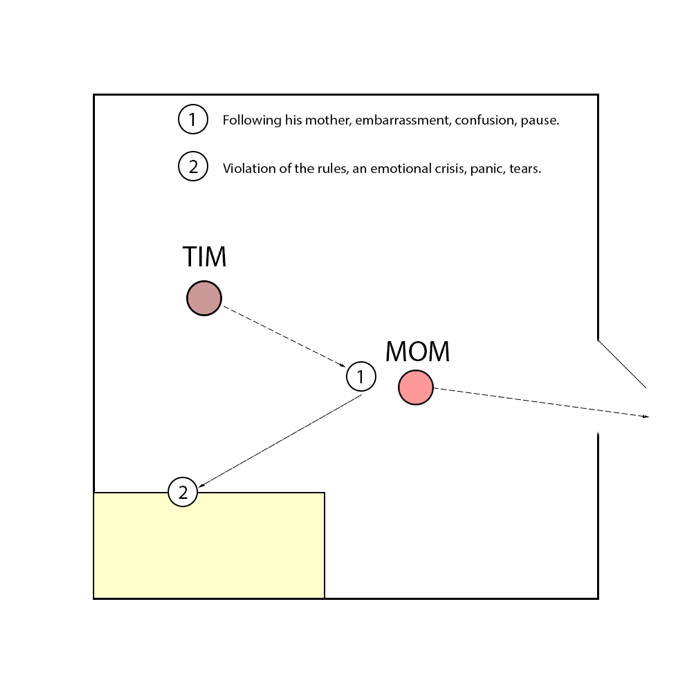Childhood is a wonderful period in human life, in which the personality of an individual is not yet spoilt by the diversity of the world around them, and therefore the thoughts and ideas that come into the mind of a child, most often pure and naive. A small child interacts with the environment around them to learn new skills, repeat the most exciting actions, or take care of nature. Nevertheless, the child can also cause harm to plants or pets, which is apparently due to personal and family characteristics of upbringing or internal motives for destruction. In this work, an observation of a young child was conducted to determine the effect nature and nurture have on the preschool child.
The three-year-old Tim is alone in a room filled with toys and furniture. The boy is confused since he just played dice with his mother, but she suddenly left and said nothing. Tim does try to repeat after his mother: the boy gets awkward on his feet and goes towards the door where his mother went out. The preschooler is confused because the door is closed, and after a few seconds of pause, Tim returns to the middle of the room and begins to study the boxes inside the closet. Tim knows for sure that he is not allowed to open the drawers, but he keeps doing this since he thinks that no one can see him. When his mother comes back to the room, Tim starts crying.

In the scenario described, one can notice the competition between the two foundations of human development: nature and nurture. Caring and affection are laid down as a natural instinct, characteristic of any family (“Nature vs. nurture theory,” 2019). As soon as the mother left her son, Tim was emotionally depressed because he felt lost and in danger. The boy, like a duck, tried to follow his mother but could not. Apparently, the subsequent pause in the child’s behavior meant switching stimuli, and Tim decided to break the established rules. This phenomenon is no longer a manifestation of natural qualities since the ban can be classified as a social framework for nurture. Deprived of care, the boy decided to satisfy his curiosity, knowing that he would be punished if caught. This is what happened: when the mother returned to the room, there was an emotional crisis in the child’s consciousness, as he understood the cause and effect of his own actions.
On the other hand, Tim’s actions could be described as the manifestation of natural attributes. One of the aspects of childhood development is a factor of nature, which is the innateness of an attribute. A person’s behavior and responses are influenced by the genes he or she possess. Nature is defined as hereditary aspects or genetic components of an individual which do not just describe how he or she physically appears but are also significant in shaping one’s personality traits. Children’s genetic constitution and biological aspects cause him or her to act as his or her parent. The way Tim reacted is how his mother behaved, particularly when she was of the same age. Since all humans are born with specific genetic characteristics inherited from their parents, the same case applies to Tim. He could have shown anger because of being genetically predisposed to act this way. His mother probably bore him with such attributes of retaliation whenever he was upset. He could be disobeying the mother by opening the drawers because it is a biological characteristic of rebellion in his parents. The trait could have been passed to him so that when the mother stopped playing with him, it was an opportunity to show his innate nature. One’s inherent hereditary characteristics influence the way he or she reacts to circumstances and his or her overall behavior.
In conclusion, there is a mutual relationship between nature and nurture as they determine how people generally behave in their lives. Considering Tim’s genotype, his genes could interact with the environment which surrounds him. Thus, distinct experiences in the surroundings impact how certain genetic traits determined by the nature are expressed. The genes of Tim, which are an aspect of nature, affected how he behaved in various settings.
Reference
Nature vs. nurture theory: Is it in our genes or our environment? (2019). Medicine Net. Web.
